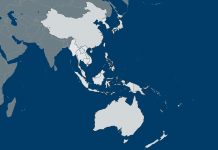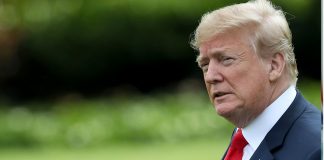Over the past weekend, major global media outlets revealed that the heads of intelligence of about two dozen countries held a (formerly) secret meeting in Singapore and had in fact been held annually for several years. The venue for the talks was the Shangri-La Hotel, also the meeting place for a large, widely known conference called the Shangri-La Dialogue, involving about 600 representatives from around the world. Such conferences, perhaps usually smaller, are common gatherings of government officials and others who want to be and are allowed to be there.
Among the roughly 24 intelligence chiefs at the informal meeting were the heads of U.S. and Chinese intelligence. India’s top intelligence chief was also present, as were chiefs from the Five Eyes network (the U.S., the U.K., Canada, Australia and New Zealand), but no other attendees were identified. It was noted that Russia was not represented – whether by its choice or by the organizers’ exclusion is unclear.
According to Reuters, the source of the information was five separate (and I assume unconnected) people. When one person leaks information, it is one of those things. When five leak the same information simultaneously, it is the equivalent of a press release. The existence of these meetings, and the revelation that the U.S. and China were both there and Russia was not, is important. What is fascinating is that there was an organized attempt by someone to blow the cover off the meeting. That the leakers seem not to have identified the others present is interesting, since it suggests the leak came from official sources who respected requests for anonymity – and indicates that those named didn’t mind it being revealed that they had attended secret meetings with major powers for some years.
Equally interesting is that the meeting of two dozen heads of intelligence could have been kept secret. A meeting of such people requires several weeks of logistical planning, security preparations, and exchange of proposed agendas and position papers. Heads of intelligence need to know what they will be dealing with, at least generally. Intelligence chiefs know secrets that their governments don’t want blurted out, and they aren’t casual about this. Their briefings on official positions and authorized threats that might be made require weeks of preparation for the chief and some staff. The American head of intelligence can’t be casually chatting with the Chinese. Obviously, preparations for the Shangri-La Dialogue mostly would have covered the smaller conference. But it is hard to believe that 24 national intelligence heads, plus other officials in each country who had to know of the preparations, could for years fail to leak a conference such as this.
The focus on security might seem less important than the reasons for the leak, but in this case, they are closely linked. The cover of the meeting was blown simultaneously by five sources. The loss of secrecy will raise public concern in at least some countries as to why the meetings were held, why they were kept secret, and what was discussed and agreed to. In democratic countries like the United States, intelligence agencies are already distrusted by many.
If any serious discussions were held, it is hard to believe they took place in the company of all the other nations present. I would guess that the meeting was accompanied by secret bilateral meetings, if not by others then by the Americans and Chinese. Russia’s absence from the smaller group is also important. I doubt that Russia was absent from prior meetings, but it was missing from this one. Obviously, China did not insist that Russia be included. The willingness of the Chinese to sit down with other powers without Moscow’s presence signifies that Russia is not seen as a great power. It was not missed. China and India had things to talk about concerning conflict on their border. And China and the U.S. had things to talk about as well.
I doubt the discussion was about potential war. I think that is a distant possibility, and any such discussion would be about the substance of war, rules of interception, warning systems and so on. At this fundamental level, the discussion more likely would be about geopolitics – more precisely, Russia. Recall the alliance between Russia and China that went nowhere.
There are two likelier subjects. There have been rumors that the U.S., which has an interest in ending the Ukraine war at or near the front, has asked China to try to work with its putative ally to end the conflict. Discussing China’s ability to do this and the price it would demand for its labor might well be at the level of intelligence directors. Another, even more probable possibility is that the two countries, sensing Russia’s decline, want to think of what the future might look like, hoping to prevent conflict between the two remaining superpowers.
After the meeting, it was revealed that India is shifting away from its relationship with Russia, long a major supplier of weapons for India, and toward the United States. Since India has been fighting China along their shared border, this agreement, like other agreements reached in the Pacific, places China in a difficult military position. It is locked out of the Pacific and facing an increasingly powerful India to its southwest.
It is, of course, not clear how long this U.S. relationship with India will last, but for the moment, added to the decline of Russia as an ally and the aggressive actions the U.S. has taken to form alliances in the Western Pacific, China is in a difficult position. I have long argued that China could not risk a war in the Pacific. Now, in my view, China must take steps to deescalate the tension. A meeting involving China’s head of intelligence and his counterparts from the U.S., India, Britain, Australia, Canada and New Zealand – and not Russia – suggests Beijing understands the position it is in and that it had to shift. The leaders seemed very careful to make the balance of power public.
There has been a spate of speeches and articles in China emphasizing the need to avoid conflict and increase cooperation. Given the geopolitical reality they face, and studying the Russian experience in Ukraine, the Chinese have a new sense of the way the world works, or a confirmation of a reality they saw months ago and hoped would evaporate. It is uncertain if the shift in tone is permanent. The test will be if they stop threatening war over Taiwan or at least confine their threats to ritual gestures. But China is on the whole signaling new relations, and the intelligence meeting and its publication was sobering.
Secret meetings of intelligence heads are dangerous. They can trigger distrust at home, particularly in the United States. But the fact that someone wanted the world to know that the meetings had been going on for a long time and who was involved in them indicates that the leakers came from countries that did well at the gathering. The other 20 or so retained their anonymity. This is a major event in the shifting balance of power.







